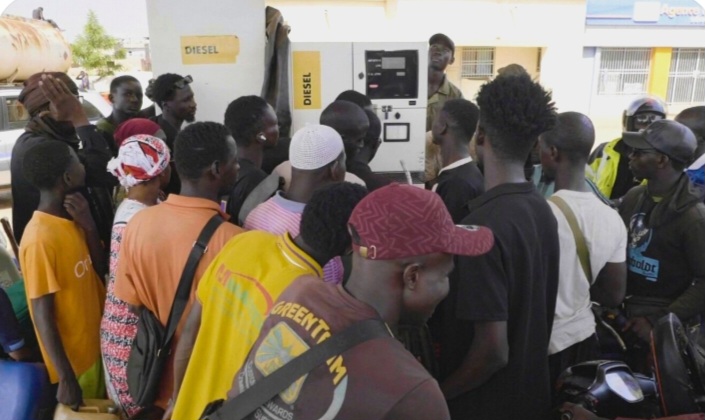
Ofure Akhigbe
Long queues stretched across fuel stations in Mali’s capital, Bamako, on Tuesday, as residents struggled to find petrol amid a blockade enforced by an al-Qaida-linked militant group that has cut off key supply routes into the country.
The blockade, declared in early September by Jama’at Nusrat al-Islam wal-Muslimin (JNIM), has led to widespread fuel shortages and growing frustration among motorists and businesses. The group has targeted and burned dozens of tanker trucks transporting fuel from neighboring Senegal and Ivory Coast into Mali.
Bakary Coulibaly, who sells petrol from a small kiosk on a roadside, said he had gone days without restocking. “It is only a few stations that have fuel,” he said, as long lines of vehicles formed outside a few operating stations.
Videos circulating on social media show burning fuel tankers and stranded drivers, though the footage has not been independently verified. Local media reported that two Ivorian truck drivers were killed in an attack in the Sikasso region on September 21, where militants ambushed a convoy of tankers coming from Ivory Coast.
The Malian Petroleum Importers Association said more than 100 tanker trucks have been destroyed since the blockade began, pushing fuel prices to record highs.
Some importers have resorted to offloading fuel at border points, where local traders risk transporting smaller quantities into the country. “I transport fuel from Dakar to the border with Mali, where traders take the risk of bringing it in,” one importer told the Associated Press.
In response, the Malian army has begun escorting fuel convoys along key routes between Bamako and the borders with Senegal and Ivory Coast. The military said on Monday that it destroyed JNIM hideouts near Kolondiéba, close to the Ivorian border, following a series of attacks on convoys.
Analysts warn that the blockade poses a severe threat to Mali’s fragile economy and could undermine public confidence in the military junta, which seized power in 2021, promising to restore stability.
Despite being one of Africa’s largest gold producers, Mali remains one of the world’s poorest countries, with nearly half of its population living below the poverty line. The ongoing fuel crisis has raised fears of power outages, higher transport costs, and food price increases.
As of this week, the blockade remains in effect, with no sign of relief for Bamako’s residents or industries dependent on fuel supply.
